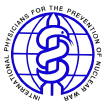Half
a century has passed since the ratification of the Universal Declaration
of Human Rights. Eventhough humanity has taken great strides since, human
rights violations continue to happen and have progressively evolved into
different forms. In the Asian region, even nation states who are signatories
to the Declaration, have challenged its basic tenets as to
whether rights are universal or relative to its cultural norms. Added
to this is the disheartening fact that human rights violations, even those
blatant enough, are either unrecognized or not reported.
The impact of
human rights violations on health is such that they are actually inseparable
parts of each other. Health professionals have a particular responsibility
in the promotion of human rights and the prevention of its violations.
Furthermore, they are in a unique position to detect, document
and report violations of human rights. However, very few professionals
recognize the violations happening around them. Fewer still have the skills
that enable them to respond effectively to the violations they encounter,
much less have the proficiency to document and report them. It is in this
spirit, that the IPPNW and IFMSA organize the First Asia Pacific Medicine
and Human Rights Training.
Education in
human rights is the first step towards the promotion and protection
of human rights. However, human rights education among medical students
is virtually nonexistent in the region. Although courses in medical ethics
and jurisprudence are taught in medical schools, the need to correlate
these ideals and principles to that of the society in general and the instrumentalities
by which to accomplish them are still lacking.
Being co-organizers
of the preceding three medicine and human rights workshops in Uganda, Zimbabwe
and the Netherlands, the IPPNW and IFMSA seek to implement the same program
in the Asia-Pacific Region. As international student bodies, both recognize
the importance of including human rights education into the medical curriculum.
Important outcomes
of the first workshop were : the Uganda Declaration, which called
for curricular inclusion of human rights in the medical curriculum and
the draft course outline for undergraduate medical students. This, they
have used in the campaign for the inclusion of human rights education in
their medical curriculum. The second training in Zimbabwe was meant to
equip these student leaders with the necessary knowledge and skills to
impart such knowledge to their fellow students back in their home countries
It is not enough
to realize that a human right has been violated without knowing how to
respond to it effectively. The participants will therefore learn how to
identify, document and report human rights violations. Another focus
will be the introduction of basic research principles in order
to enable participants to carry out descriptive and intervention
studies. The training will also create a mechanism to gather consensus
among medical students as to their concept of human rights and enable them
to investigate and document violations of the right to health, to remind
the states of its responsibilities, and to start up local projects
in order to solve the problems from a grassroots level.
Eighty student
leaders will take part in the training, which will be held in the Philippines.
These participants will be selected based on their experience, involvement,
and commitment to carry forward the knowledge and skills they will acquire
in the training.
Thematically,
the focus of the training will be the basic principles of human rights,
the Asia-Pacific experience on the UDHR and its principles. Emphasis will
also be placed on the link between health and human rights and the
rights of vulnerable sectors such as women, children and indigenous
peoples.
Those who receive
training in Manila will continue to work for health and human rights.
This early, plans for similar workshops in the Palestinian region and for
the North and Latin American countries are in the offing.



